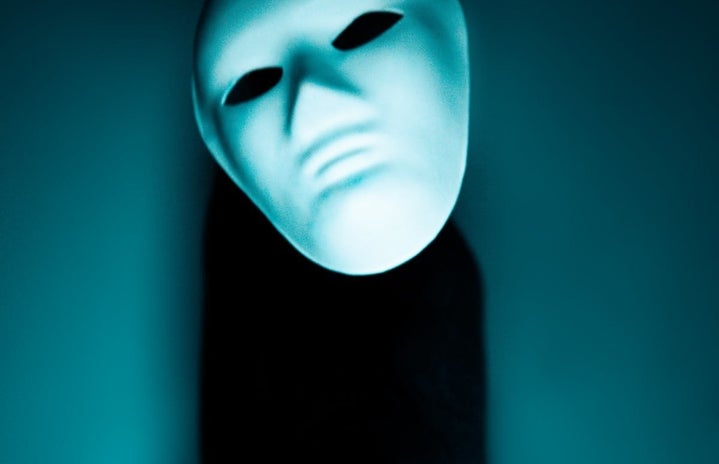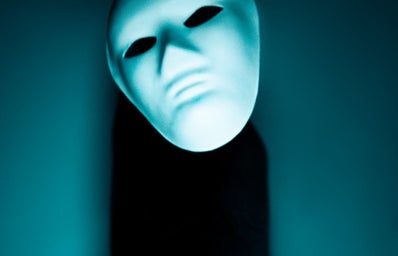The concept of the ‘unconscious’ was put forth by Sigmund Freud. The psychoanalytical theory hypothesized the idea of a clandestine aspect of human personality, a part of ourselves that we couldn’t face. This hidden part found a way to creep into our conscious state of being and govern our actions. While today this theory lacks empirical backing, it undoubtedly set the foundation for what is known as ‘unconscious’ behaviour. Today’s notion stems from inherent associations, beliefs, and ideas of behaviour that we have imbibed over time and is fuelled by our innately prejudiced wiring as human beings. We fall prey to ‘mental shortcuts’ and ‘pre-defined frameworks of behaviour’ that sit well with our current beliefs, resulting in a perpetuating cycle of reinforcement. As per an article put forth by Forbes, ‘we tend to focus on the “ugly” type of biases that nurture interpersonal conflict and inequality.’ Here is where oppression comes in. Oppression, defined as a situation in which people are governed in an unfair and cruel way and prevented from having opportunities and freedoms is what normalizes these biases and concretely sets them in at an individual level.
This article aims to explore the power of oppressive behaviour and the extent to which influential individuals across the world operate in manners contradictory to the social perception they portray. The darkness of human behaviour transcends beautiful faces, monetary power, intellectual evolution, and social stature. It often rears its ugly head behind closed doors, away from the grandiose image that the world sees.
Conflict#1: Modernity versus Misogyny
“Men are afraid that women will laugh at them, women are afraid that men will kill them” – Margaret Atwood
In 2000, a woman attempted to flee her father’s estate in the United Kingdom only to be seized off the streets of Cambridge and smuggled to Dubai within a few months. 18 years later her sister curated an escape from that same father’s home in Dubai. This elaborate plan involved sailing across international waters to Goa from where she would be taken to the United States, a symbol of freedom which until now lay buried in the sands of Dubai.
Princess Shamsa and Princess Latifa are the daughters of the Vice President, Prime Minister and Ruler of the Emirate of Dubai, Sheikh Mohammed bin Rashid Al Maktoum. Princess Shamsa’s escape was short lived and reports allege torture, forceful drugging, and imprisonment in the darkness for years leading to multiple suicide attempts after her capture. The suffering of Shamsa was brilliantly gagged by her father and the story of a young girl whose only mistake was the acceptance of her freedom as a prized possession was mercilessly portrayed as her inability to adapt to the necessities of royal life.
Princess Latifa’s second attempt, fuelled by the death of her sister garnered media attention through a pre-recorded video in which she speaks of the dire need to escape her father’s oppressive treatment and mentions arbitrary detention, physical abuse and a complete breach of human rights. Her elaborate plan came to a standstill when her ship was intercepted by Indo – Emirati forces in the Indian Ocean, raided and she was forcefully brought back despite reported cries of her preference to be killed on that ship over going back to the cage that suffocated her. The fate of the two sisters remains a mystery to an extent, some believe that one day they will see the light of day while others confirm that they lie buried, side by side, waiting for the world to once again forget another story.
‘The Modernizing Sheikh’, a man who transformed Dubai into a contemporary, financial centre, a man whose name is associated with the emergence of the Burj Khalifa, a man who made Dubai the first Islamic country to announce space exploration into Mars by 2021, a man who launched e-learning platforms and programmes to educate over 1 Million Arab children and a man who pledges the denouncement of discrimination and the thread of respect as one of the 8 governing principles of Dubai is also a man corrupted by the venom of misogyny.
On one hand, we see him lauding the participation of women in the National Federal Elections while on the other he strips his own family members of their dignity of life. He is a man praised by leaders such as Ivanka Trump for reformative changes towards the empowerment of women in the UAE, somebody who supports the Women Empowerment Fund set up by the World Bank yet the stench of abuse, deception and deep-rooted, all-pervasive inequality cannot be masked.
Conflict#2: Family versus Societal Pressure
“Why is it that, as a culture we’re more comfortable seeing two men holding guns than holding hands?” -Ernest J. Gaines
Manvendra Singh Gohil of Rajpipla, Gujarat is the only openly gay prince in the world. An heir to one of the oldest royal families of India, since childhood Manvendra had been fed the responsibility of the family lineage, the gravity of the dynasty he represented and the need to abide by the pre-determined path set for him. Following tradition, Manvendra was married at a young age leading to a subsequent mental breakdown and divorce on claims of ‘impotency’. It was after this period that he publicly came out to the world in 2006. While to us this seems like an act of strength and of acceptance, who are we to accept another human being for being just who he/she is? What gives us the power to mediate who is worthy of acceptance? Hailing from a family deeply rooted in tradition, their refusal to acknowledge their son’s homosexuality does not seem shocking but what arises here is a conflict between two types of love. The choice he had to make between the love of his family and the love he had for himself as a person.
His need to speak out, to educate and to empower was seen as a direct insult to the pillars upon which his lineage had been built. This need however stemmed from the desire to provide other homosexual men around the country with a voice and to arm them with the confidence to follow in his footsteps. A mother’s love is believed to be unconditional but in this case, like many others, only a certain version of Manvendra would be loved. His mother threatened to kill herself if he refused to get married, put out adverts publicly disowning him, the people of his hometown burnt effigies of him and his family took away the ancestral name. It took 10 years for reconciliation with his family and while today Manvendra has fought homophobia in his personal life, millions of people around the world remain alienated and denied of the fundamentals of human life — mutual love and respect. Why? That is a question that we as a society must truly mull over.
Conflict#3: Education versus Xenophobia
“What a sad era when it is easier to smash an atom than a prejudice.” –Albert Einstein
To explain this, I don’t have to go back into history. All I have to do is take a walk in the supermarket or just read the headlines of a newspaper. Xenophobia, defined as hatred and contempt towards strangers or of anything that is unfamiliar is today, in the times of COVID-19 deadlier than the virus itself. Pandemics, national disasters, and calamities reveal the rawest aspects of people and in this case what we see gaining ground are slurs, racist stereotyping and sadly, a normalisation of stigma.
The hashtag ‘I am not a Virus’ is trending in parts of the world while what personally shocked me was an Instagram post put up by UC Berkeley. The institution faced massive backlash as it clubbed Xenophobia as a ‘common reaction’ to the anxieties caused by COVID-19. In doing so, in a matter of a few minutes, it reinforced the ‘foreignness’ of a large number of students for no fault or link to anything that could warrant this statement. When a prestigious educational institution with the responsibility of moulding young minds is oblivious to the content it puts out, is that not an indication of just how immune we have become to hate? I’d like to take you back to what Freud once said, “Men are more moral than they think and far more immoral than they can imagine.” It’s up to us which side of the spectrum we choose to align with. It’s up to us to allow our experiences to transform us. It’s up to us to change course, to self-reflect. And lastly, it’s up to us to bring light into the darkest parts of our minds but that can only happen if we wake up to the darkness that exists.


